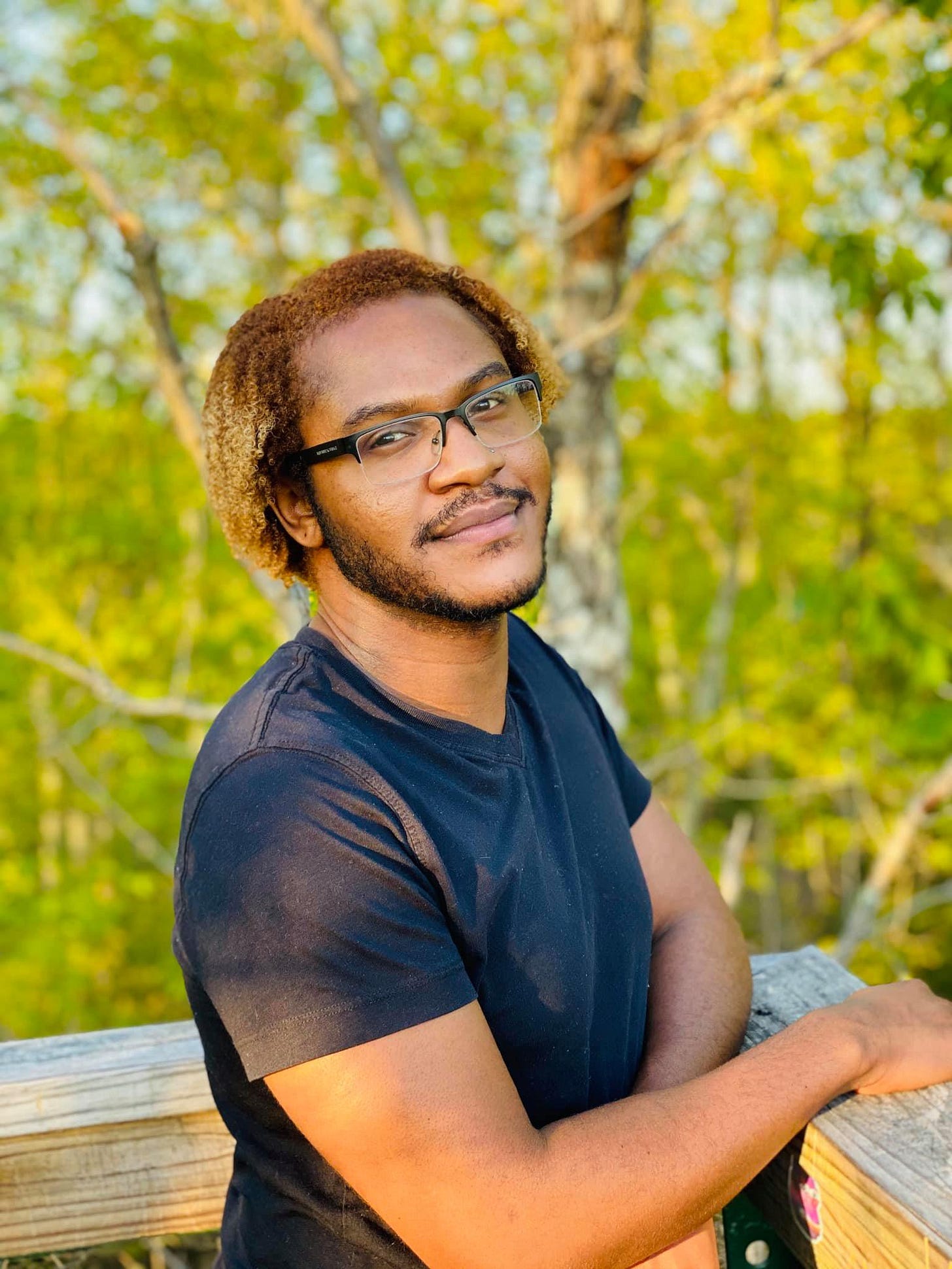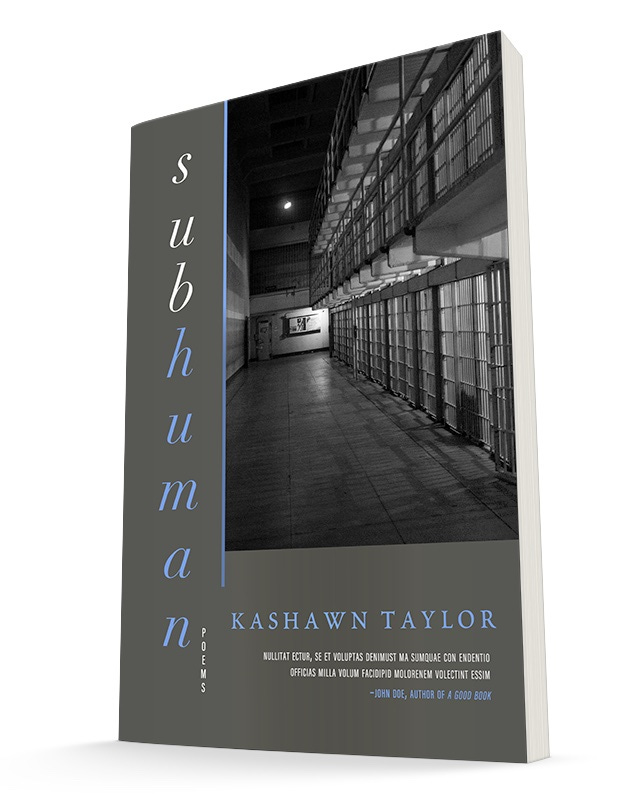Point yourself in the direction of the sunset
An interview with Kashawn Taylor
The forces in our lives are constantly colliding—sometimes in ways that work out well and sometimes in ways that don’t. This interview series is an exploration of what it can look like to work with the collisions, rather than against them. By digging into how humans and nature interact– from our relationships with other humans, to those with our non-human neighbors, to our relationship with ourselves to our relationship with the landbase–we can uncover how to best step fully into our role in the story of the world.
Welcome back to the Ordinary Collisions Interview Series! I’ve got some wonderful guests to introduce you to in the coming months, and I’m thrilled to start things off with my fellow poet, Kashawn Taylor.
Kashawn is a formerly incarcerated writer based in CT. His work has been or will be published by such journals and magazines as The Blotter, Indiana Review, Querencia Press, The Shore Poetry, Poetry Magazine, Miracle Monocle, The Offing, and more. His debut collection of poetry, subhuman., will be published in March 2025 by Wayfarer Books.
Heidi: Kashawn, thanks for being here with us today. To start, I always ask the same question: What are two forces that are colliding in your life right now (or that have in the not too distant past)?
Kashawn: What a great question, and for me, a simple one. Right now, I am straddling the fence between incarceration and full freedom. I am currently on what is known as community release after a twenty-one month stint in prison for a car accident where someone lost their life. It was honestly a life-changing experience. Now, living under supervision, I am trying to get back into being a real person again, writing my experience, working, and going back to school for an MFA after my MA.
Heidi: It sounds like you’re living in what’s sometimes called that “space between stories”— both a challenging and illuminating time. How are you navigating the conditions this collision is creating? How does the dissonance created impact your choices?
Kashawn: I think with so much looming over my shoulder — my past, possible re-incarceration, and the stigma that comes along with having been to prison — I have been navigating the conditions well. I’m much more focused than I ever was. I’ll be thirty-two in about a month; I graduated from my undergrad in 2013 and did nothing with writing until I went to prison. Since getting out, I have been more tenacious in honing my craft which includes fiction, poetry, and nonfiction. I have been able to get more writing done and submitted without the distractions. My life right now is very structured, and I kind of love it. When I am not working, I use my free time to write, do school work, and work out. Overall, I make better choices having known where bad decisions can lead me, and with those better choices comes the space to make art.
Heidi: It does sound like you’re navigating just fine—you’re using your past experience to fuel your current reality. I love this: “..with those better choices comes the space to make art.” You’re setting yourself up for creativity with all that focus—what a gift to yourself and your readers.
What has this collision taught you about yourself? The world?
Kashawn: That I can do things when I set my mind to them. When I allow doubt and insecurity to creep in, I become immobile. I get anxious and do nothing. Then, I feel bad about doing nothing. It’s a vicious cycle, really. Things can get done — on small and large scales — if we work towards them, one step at a time. Even if they are baby steps. I am an optimist at heart. I believe in the good in people, in the world. When I think about where I came from, the lows that I have faced, the pain that I have caused, and where I am now, the difference is night and day. This world is sad, but it’s also really good and beautiful, and sometimes people just need to be pointed in the direction of the sunset instead of standing with their back to the beauty.
This world is sad, but it’s also really good and beautiful, and sometimes people just need to be pointed in the direction of the sunset instead of standing with their back to the beauty.
Heidi: I love that last sentence about pointing ourselves in the direction of beauty so much. And as a fierce advocate of the power of tiny, intentional acts, I appreciate you sharing that those small steps is how change is made.
Now, I’d love to hear about a collision you explore in your latest project.
Kashawn: A collision I explore in subhuman. is the relationship between myself and those on the outside. I write a lot about how the world moves on, how people stop answering the phone, and how relationships change when a person is incarcerated. There are lots of feelings of loneliness though I was surrounded by lots of people, many of whom I still keep in contact with today. Relationships are a big theme in the book: relationships with those on the outside, with other inmates, and with myself. Feeling resigned versus making the best of my experience, hating myself versus trying to better myself. Now that I think of it, there are so many collisions in the book.
Heidi: I look forward to reading about them very much when the collection comes out next spring. From what you’ve shared, I think it’s a book that’s going to speak to so many folks—from loneliness to trying to navigate relationships to feeling left behind. There is so much important stuff that you’re unpacking.
As we wrap up today, what else would you like to share about your current projects?
Kashawn: I have so many fun things in the pipeline. “The Court Trip” is an essay that will be out November 14th, published by The Offing. In December, Miracle Monocle will be publishing a short story called “Dead Air.” Emergent Literary, Poetry Magazine, and Words Beyond Bars have some selections from subhuman. that will be published in the coming months. Some recent publications include: BULL Lit Mag, The Shore Poetry, and Union Spring Literary Review. And of course, subhuman. will be out in March 2025 which is something I am so proud of.
Have a collision you’d like to explore in this space? Send me an email at heidi@heidibarr.com.





